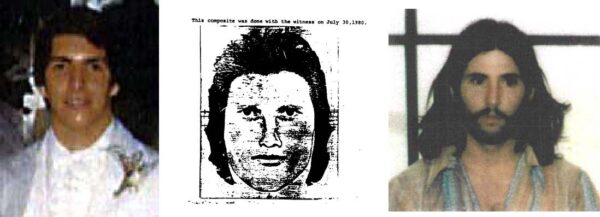ACLU Asks Supreme Court To Review Case Of Innocent Man On Texas' Death Row
Max Soffar Never Given Opportunity To Present Evidence Pointing To His Innocence
FOR IMMEDIATE RELEASE
CONTACT: (212) 549-2666; media@aclu.org
NEW YORK – The American Civil Liberties Union and the Texas Innocence Network (TIN) today petitioned the U.S. Supreme Court to review the wrongful conviction of an innocent man who has sat on Texas' death row for nearly three decades.
In their petition, the ACLU and TIN argue that Max Soffar, whose conviction and death sentence in the killing of three people during an armed robbery at a Houston bowling alley in 1980 were based on a false confession, has never been given an opportunity to present evidence that points strongly to his innocence.
"The death penalty system in our country is impossible to trust when innocent people sit for decades on death row without ever being afforded a fair trial or the opportunity to present all existing evidence," said Brian Stull, staff attorney with the ACLU Capital Punishment Project. "The Supreme Court should take up this case and establish, once and for all, that when available defenses are hidden from the jury, the verdict cannot stand."
Soffar was convicted and sentenced to death in 1981, but a federal court in 2004 reversed the conviction because he was represented by incompetent lawyers who failed to show the jury that most of the details in his confession were contradicted by the account of the surviving witness and other evidence in the case.
Soffar was tried again in 2006 and again convicted and sentenced to death. In that trial, however, the trial judge refused to allow a statement of Paul Reid confessing to the murders. Reid, formerly of Houston, now awaits execution on Tennessee's death row for committing a series of similar robbery-murders in that state. A photograph of Reid taken at his wedding nine days after the bowling alley murders strongly resembles the police's composite sketch based on the description of the crime's sole witness.
Additionally, the only correct details in Soffar's false confession were widely disseminated in media reports that the trial judge refused to allow Soffar to utilize as part of his defense. Because the trial court refused to allow Soffar to present the media reports to the jury, prosecutors were able to claim that the details in Soffar's false confession could only be known by the person responsible for the crime.
False confessions are among the leading causes of wrongful convictions, and evidence shows that people like Soffar who are impulsive, have low self esteem and who are prone to fantasy and disassociation are the most likely candidates for false confessions. Soffar had a known history of giving police officers unreliable information, and the police knew that Soffar had falsely confessed to other crimes.
"The conviction of Max Soffar and the fact that he remains on death row exemplify all of the fundamental failures of our criminal justice system," said David Dow of TIN. "We are hopeful that the Supreme Court will examine this case and that Texas will not execute yet another innocent man."
A copy of today's petition is available online at: www.aclu.org/capital-punishment/soffar-v-state-texas-cert-petition
Additional information about Soffar's case is available online at: www.aclu.org/capital/innocence/29715res20070430.html
Lawyers on the case are Stull and John Holdridge of the ACLU Capital Punishment Project and Dow and Jared Tyler of the TIN.

